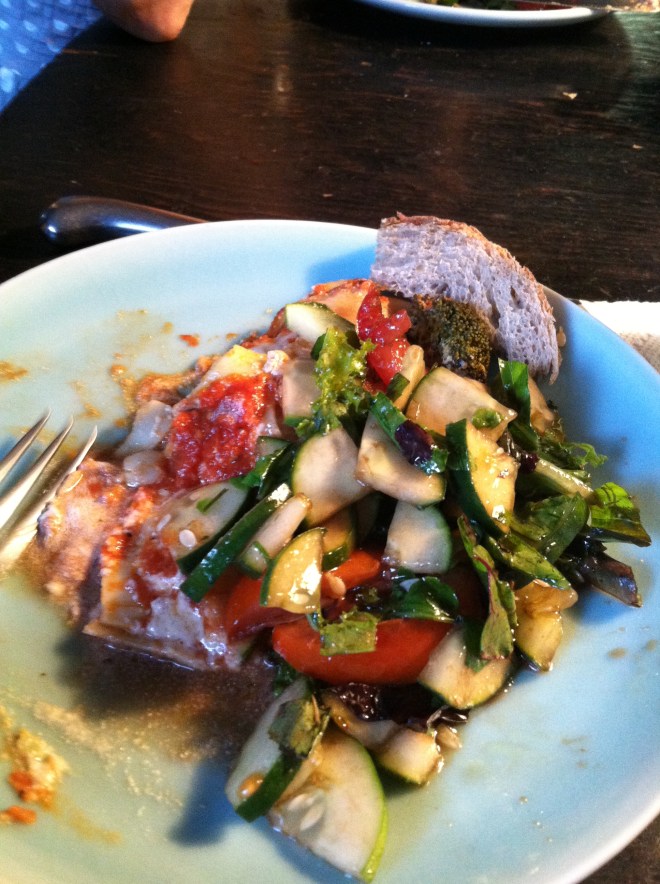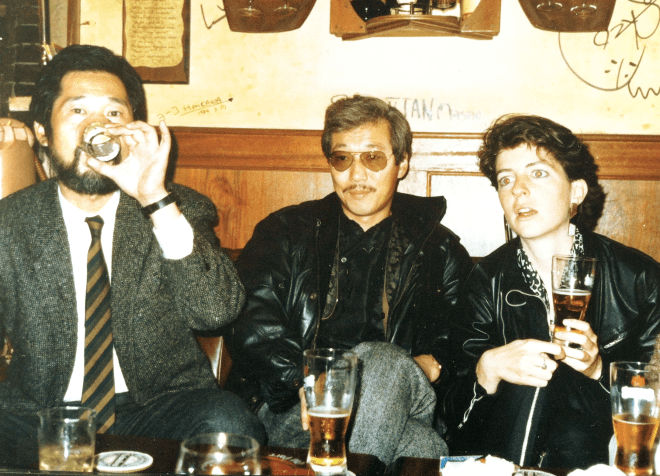
Growing up in the Bronx, when I wanted to go outside to play I yelled “I’m goin’ down!” not “out”. Exiting apartment 7D, I’d walk down the windowless hallway to the elevator, or more likely, yank open the heavy door to the stairwell and leap down (step on first two steps, jump the rest) 7 flights of stairs. Sometimes I stopped at the 2nd floor to ring Barbara’s doorbell – if she wasn’t already waiting out on the stoop. We’d sit on those cement steps for hours, taking turns at hopscotch – or maybe we’d roller skate up and down the bumpy stretch of Broadway sidewalk that constituted our block. If Barbara’s mother, Mrs. Bullard, wasn’t at her usual perch, her elbows propped on a pillow as she looked out at the street, we might dash across the 4 lanes of traffic to go play in VanCortlandt park. This instead of walking down to the light at the cross walk – that would have taken 2 more minutes.
VanCortlandt park is now a gorgeous stretch of woods and fields, streams and even a horse barn. Back in the late 1960s, the stretch across from our apartment building was mostly shabby, sad grass ruined by dog shit and we still rarely ventured beyond that one field. Especially after the stocky guy with the red goatee crashed through the branches to lift Marjorie out of the tree she was climbing in. Puzzled, I stood watching him until I realized he was trying to get her pants off. Feeling a weird detachment, I ran out beyond the tree line yelling for help although there was no one but a distant dog walker. Seconds passed before Marjorie ran out after me having successfully squirmed out of his arms. We didn’t speak as she zipped up her pants. I held my breath so I wouldn’t laugh, feeling crazy – why did I want to laugh? I didn’t tell my parents and I bet she didn’t tell her’s either. Unaccounted for shame of good Catholic girls. We stayed out of the woods from then on, unless there was a gang of us. Marjorie and I were probably 10 at the time.
I didn’t intend to write about this creepy childhood, urban episode. Funny how memory works.

No, this morning, as I listen to mad-chirping at my window and watch the birds surrounding the feeder that hangs inches from where I sit, I remember myself as an almost-teen, raiding the nature shelves of the Riverdale Library. Almost weekly, I’d come away with another stack of books on identifying birds, tracking animals, living out in the wild. I loved books by naturalists – or simply observers of nature. May Sarton was a favorite – a poet in New Hampshire who wrote about the seasons and solitude and kept journals like I always did, full of observation and reflection. And I thought, that this was precisely the life I wanted: to be in a place where I could write and watch the birds, maybe the deer and other creatures who wandered out of the surrounding wood, to drink from the stream I also imagined as mine. A city kid, I wanted to live in the country, maybe even live off the land.

Some summers, my parents who were teachers and had summer off too, would rent a house in Vermont where I got to live out my fantasy for a few weeks. Eventually they bought a getaway in the Hudson Valley that we’d go up to on weekends. Behind that house were woods with an old trail I used to wander up feeling safe even by myself, mesmerized by the silence that wasn’t really silence, enchanted. Listening, watching, hoping the Chickadee’s might land on me if I stayed still long enough. In those woods, I discovered a way to a peaceful place -physically and spiritually.
I imagined then, disappearing into the wild and staying there. My copy of Euell Gibbons Stalking the Wild Asparagus, the original bible of foraging and eating from the wild, was dog-eared. Once I treated my Fifth Grade classmates at PS 95 to a meal of Dandelions — roots and little flower buds drenched in butter. That seemed to be the key to the memorable meals from that book: butter. And sugar too. Another favorite were blossoms of the Black Locust tree – dipped in batter, drenched in OJ and rolled in sugar. Fritters of dough and sugar with a green stem in the middle. But the perfume of the blossom was intoxicating and somehow, that translated to taste as well.
Decades later in a Connecticut city on my .24 acre of nature, with no stream or wood, I narrow my focus to my green patch (also a little shabby, I admit) and find the same joy. Although the hum of traffic is always audible and houses surround me just beyond the hedge, my garden, the bird feeder and observed moments just outside this window nurture me and I remember the kid I was. I knew then, the way to serenity. And now, I get to just go ‘out’.















